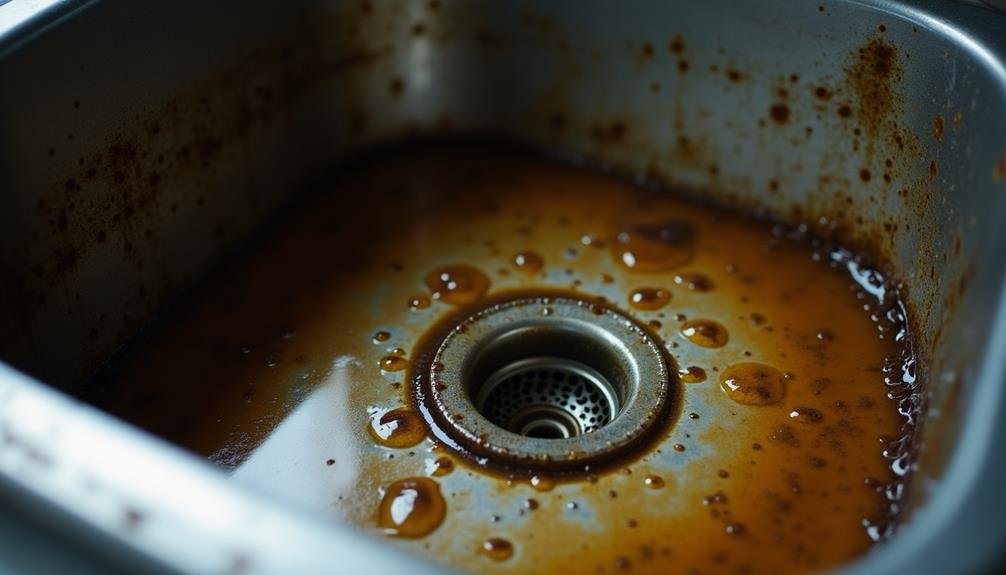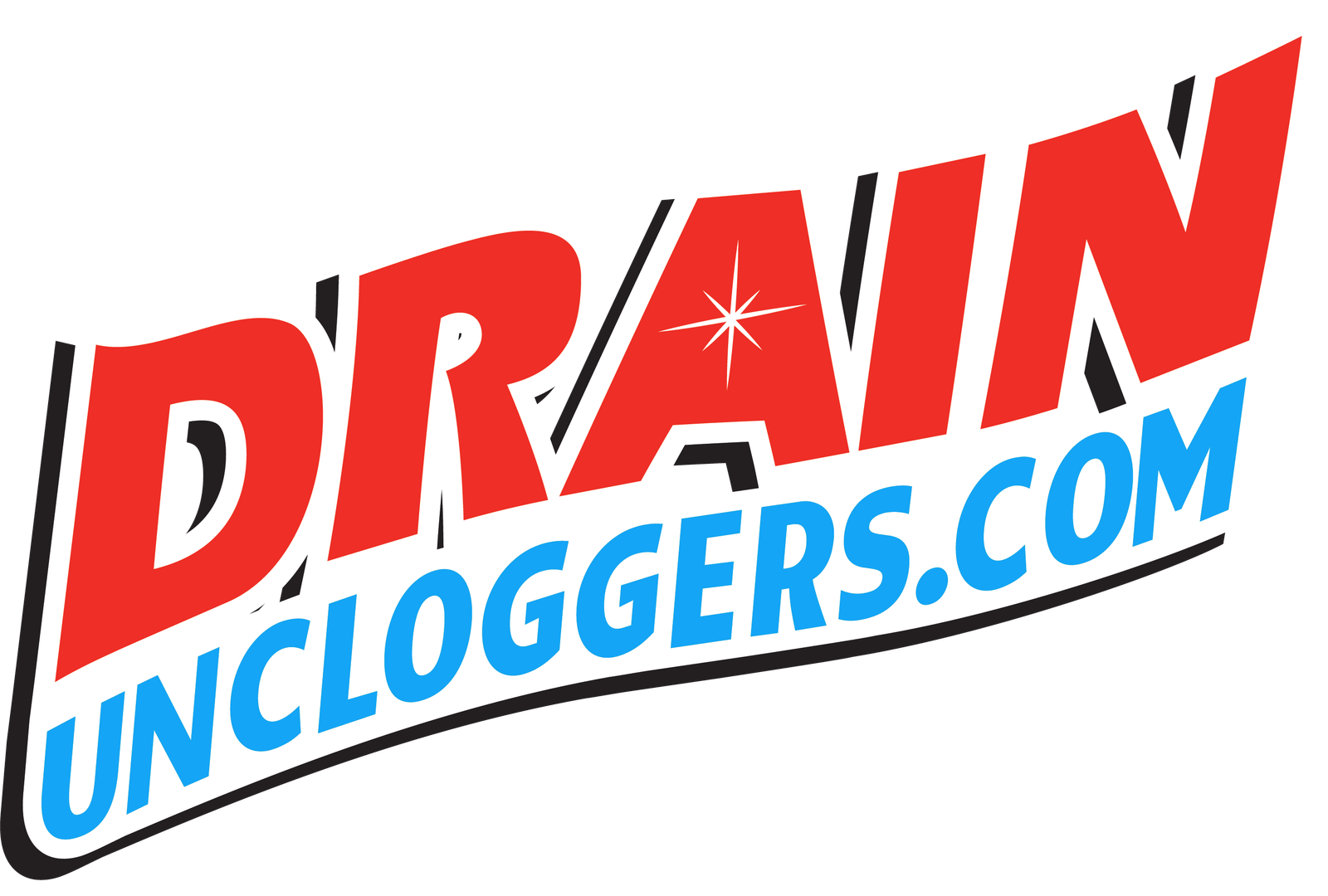You might think that ignoring minor drain issues is harmless, but in New Jersey, that could lead to costly consequences down the line. Seasonal changes can exacerbate clogs, making it easy for small problems to spiral into major plumbing emergencies. By recognizing the early signs of a blockage and acting promptly, you can save yourself from stress and financial strain. The benefits of regular maintenance extend beyond convenience, impacting the overall health of your home. So, what should you know about the common causes of clogs and how to address them effectively?
Common Causes of Clogged Drains
Clogged drains can be a real headache, and they often stem from a few common culprits. One major issue is hair buildup, which can quickly accumulate in your shower or bathroom sink. When you wash your hair, those strands tend to cling together and create a tangled mess that blocks water flow.
Another frequent culprit is grease accumulation. If you pour cooking grease down the kitchen sink, it may solidify and stick to the pipes, leading to serious blockages.
Similarly, food particles can get trapped in the drain, especially if you don't use a strainer. Over time, these deposits can create a sludge that obstructs flow.
You might also encounter problems with foreign objects accidentally dropped down the drain, like soap bars or small toys.
Lastly, tree roots can invade your plumbing system, seeking moisture in the pipes. As they grow, they can cause significant damage and clogs.
Signs Your Drains Need Attention
Noticing slow drainage or frequent backups? These are clear signs that your drains need attention. If water takes longer than usual to go down, it's a strong indicator of a blockage. You might also experience frequent backups, which can disrupt your daily routine and create frustration.
Another sign to watch for is drain odors. If you start to smell unpleasant or foul scents coming from your sinks or tubs, it's likely a buildup of debris or stagnant water in your pipes. This can indicate that your drains are struggling to function properly, and ignoring it can lead to bigger issues down the line.
Keep an eye out for gurgling noises when you use the sink or flush the toilet. This could mean air is trapped in the pipes due to a clog, which can worsen the slow draining you're already experiencing.
If you notice any of these symptoms, don't wait to take action. Addressing these issues early can save you time and money in the long run, so your plumbing remains in good working order.
Regular maintenance is key to preventing minor problems from escalating into major headaches.
Consequences of Delayed Cleaning
Delaying drain cleaning can lead to a host of serious consequences that you definitely want to avoid. When you neglect your drains, you increase the risk of drain blockages. These blockages can cause water to back up in your sinks, tubs, or toilets, creating an unpleasant mess and potential water damage in your home.
As the situation worsens, you might face more significant plumbing issues. For instance, a simple blockage can escalate into a complete drain failure, requiring costly repairs or even a full replacement of your plumbing system.
You'll also risk the growth of mold and bacteria, which can be hazardous to your health and lead to expensive remediation efforts.
Furthermore, if drain blockages persist, you might find yourself dealing with foul odors that permeate your living space, making it uncomfortable for you and your family.
It's clear that delaying drain cleaning isn't just a minor oversight; it can snowball into major headaches and expenses.
Benefits of Regular Maintenance
Maintaining your drains regularly can save you from a world of trouble and expense. When you take proactive steps to clean and inspect your drains, you're implementing effective preventative measures that help prevent clogs and backups.
Regular maintenance allows you to identify potential issues before they escalate, ensuring your plumbing system runs smoothly.
One of the most significant benefits of this routine care is the cost savings it provides. By addressing minor problems early, you avoid the hefty bills associated with emergency repairs caused by neglect.
Moreover, a well-maintained drainage system can improve water flow and efficiency, which may lead to lower utility bills over time.
In addition to financial benefits, keeping your drains clean contributes to a healthier home environment. It reduces the risk of mold, odors, and pest infestations that can arise from stagnant water or waste buildup.
You'll not only protect your wallet but also enhance your overall living conditions.
Cost of Emergency Repairs
Ignoring regular drain maintenance can lead to unexpected and costly emergency repairs. When your drains back up, you might find yourself in a situation requiring emergency plumbing services.
These situations often arise at the most inconvenient times, like late at night or on weekends, when you least want to deal with them. The urgency of these issues typically results in higher repair costs compared to routine maintenance.
Emergency plumbing can involve extensive service calls, and you might pay a premium for after-hours work. The longer you wait to address minor drainage problems, the more serious they can become, leading to significant damage and even more expensive repairs.
You could be looking at hundreds, if not thousands, of dollars in repair costs if a simple clog turns into a major pipe issue.
Seasonal Factors in New Jersey
Understanding the seasonal factors that affect your drains in New Jersey is crucial for effective maintenance. The state experiences varied seasonal weather, and each season brings unique challenges that could impact your drainage system.
In spring, melting snow and heavy rains can lead to increased water flow, making it essential to ensure your drains are clear to handle the surge. Debris like leaves and twigs can clog your pipes, so cleaning them out before the rains hit is wise.
As summer arrives, hot and humid conditions may cause organic matter to break down more rapidly, creating blockages. Regular maintenance during this season helps prevent issues that can arise from stagnant water.
When fall comes, fallen leaves can quickly accumulate, leading to drain obstructions. Cleaning your drains during this time ensures that water flows freely as temperatures start to drop.
DIY Drain Cleaning Techniques
Cleaning your drains doesn't have to be a daunting task; with just a few simple techniques, you can tackle common clogs effectively.
Start with natural remedies like baking soda and vinegar. Pour a half cup of baking soda down the drain, followed by a half cup of vinegar. Let it fizz for about 15 minutes, then flush with hot water. This method helps break down grease and debris without harsh chemicals.
You can also use a mixture of salt and boiling water as a preventative measure. Pour a half cup of salt followed by a pot of boiling water down the drain once a month. This helps prevent buildup and keeps your pipes flowing smoothly.
Another handy technique is using a plunger. It's simple but often overlooked. Make sure the plunger covers the drain completely, and use quick, forceful thrusts to dislodge the clog.
Lastly, consider using a drain snake for tougher clogs. Insert it into the drain, twist, and pull it out to remove hair and gunk.
When to Call a Professional
Sometimes, despite your best efforts with DIY methods, a drain clog can persist or worsen, signaling it's time to call in a professional. If you notice slow drainage, recurring clogs, or unpleasant odors that don't go away, it's a clear sign that you need help. Ignoring these issues can lead to bigger problems, such as plumbing emergencies that could result in costly repairs.
A professional plumber can perform a thorough drain inspection to identify the root cause of the problem. They've the tools and expertise to tackle situations that are beyond typical household solutions. If you've tried multiple DIY techniques without success, don't hesitate to reach out for professional assistance.
Additionally, if you notice any signs of water damage, such as stains on your ceiling or walls, or if you hear gurgling sounds from your pipes, it's crucial to act quickly. These could indicate serious plumbing issues that require immediate attention.
Long-Term Drain Care Tips
Taking proactive steps in drain maintenance can help prevent the need for professional intervention down the line.
Start by scheduling regular drain inspections. By checking your drains every six months, you can catch potential issues before they escalate. Look for signs like slow drainage or unusual odors, which can indicate a problem.
Incorporate preventive maintenance into your routine. Flush your drains with hot water weekly to help clear buildup. You can also use a mixture of baking soda and vinegar monthly to break down grease and debris.
Avoid pouring grease or food scraps down the drain, as these can lead to clogs over time.
Keep drain covers and filters clean and free of debris. This simple habit can significantly reduce the amount of buildup in your pipes.
If you notice any persistent issues or frequently clogged drains, don't hesitate to consult a professional. They can provide targeted solutions to keep your drains functioning smoothly.


